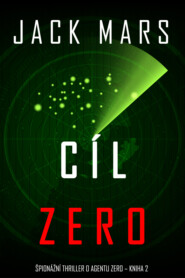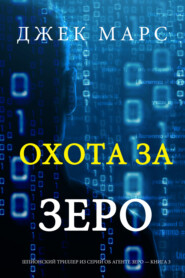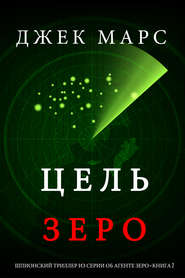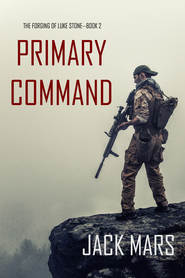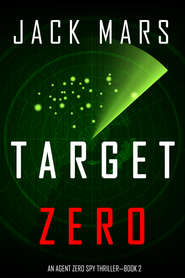По всем вопросам обращайтесь на: info@litportal.ru
(©) 2003-2025.
✖
Oppose Any Foe
Настройки чтения
Размер шрифта
Высота строк
Поля
Oh yes, the blessings.
The rebuilt house had been blessed, in turn, by an Orthodox rabbi from Philadelphia, a Muslim imam, the Catholic Archbishop of Washington, DC, the minister of the North Capitol Street AME Zion Church, and the famous Buddhist monk and peace activist Thich Nhat Hanh.
The wrangling that had gone into picking the religious dignitaries – that alone had soured Susan’s taste for this event. An Orthodox rabbi? The Women of Reform Judaism were vocal with their annoyance – they had pushed for a female rabbi. Sunni or Shiite for the imam – there was no pleasing both. In fact, Kat Lopez had stuck a finger in both their eyes and gone with a Sufi.
Catholic groups were not thrilled about Pierre. The First Gentleman of the USA was gay? And married to a woman? Cats and dogs were lying down together. That question was resolved when Pierre decided to take a miss and watch the event from the apartment in San Francisco.
Pierre and the girls had largely disappeared from public life since the scandal. It was right to keep the girls away from the spotlight after everything that had happened, but this was an important event and Pierre hadn’t even wanted to come. That worried Susan a little. Really, more than a little. And of course, now the gay rights activists were furious with him for what they saw as his bowing to pressure from the Catholic Church.
At the podium, Karen White, the new Speaker of the House, was just finishing her speech. Karen was eccentric, to say the least – she wore a hat with a large paper sunflower on it. The hat was more appropriate for a children’s Easter egg hunt than for today’s event. If Etta Chang saw that hat, it would be time for a fashion makeover.
Karen’s remarks had been short on jabs at the liberals in government – thank God, because the special elections to re-constitute the decimated Congress were two weeks away. The campaigns had turned into a mindless hate-filled scramble – historians enjoyed going on CNN and FOX News to claim that the civil discourse in the country had reached its lowest ebb since the Civil War.
What Karen White lacked in offensive rhetoric on the domestic front, she more than made up for on the world stage. Her speech seemed to suggest – to the gasps of many in the audience – that the White House had been destroyed not by rogue elements of the conservative movement and the military here in the USA, but by foreign operatives, possibly from Iran or Russia. During one string of tortured logic, the special envoy from Iran had stood up and stormed away, two of his senior diplomats in tow.
“It’s fine,” Kurt Kimball, the National Security Advisor, said in Susan’s ear. “They all know Karen’s a little nutty. I mean, look at her hat. We’ll have someone from the State Department make it up to them.”
“How?” Susan said.
He shrugged. “I don’t know. We’ll figure something out.”
On the stage, Kat had given Susan the nod. They were ready for her. She stepped onto the stage as Secret Service agents moved into position around her. The podium was surrounded on three sides by clear bulletproof glass. She stood for a moment and surveyed the assembled crowd. She wasn’t nervous at all. Talking to the people had always been one of her strong points.
“Good morning,” she said. Her voice echoed out over the lawn.
“Good morning,” a few wisecrackers shouted back.
She launched comfortably into her prepared speech. It was a good one. She spoke to them about shared sacrifice, and about loss, and about resilience. She told them about the greatness of the American experiment – something they already knew. She told them about the valor of the men who had saved her life that night, and she recognized Chuck Berg – who was now the head of her home security detail, and was standing on stage with her – and Walter Brenna, who was an honored guest in the front row. Both men raised their hands and received thunderous applause.
She told them she was moving into the White House this very day – which brought a standing ovation – and she welcomed them inside after her remarks, to take a tour and see what she’d done with the old place.
She finished with a flourish, echoing that great hero of hers, and of everyone, John Fitzgerald Kennedy.
“Nearly sixty years ago, John Fitzgerald Kennedy was elected President. His inaugural address is one of the greatest and most quoted speeches ever delivered. All of you know that he told us in that speech to ask not what our country could do for us, but what we could do for our country. But you know? There’s another part of that speech, less well known, that I enjoy just as much. It seems particularly appropriate for today’s events, and I want to leave you with it. What Kennedy said was this.”
She took a deep breath, hearing in her mind the pauses that Kennedy had taken. She wanted to get his phrasing exactly right.
“Let every nation know,” she said, “whether it wishes us well or ill… that we shall pay any price… bear any burden…”
In the crowd, the cheering had already begun. She waved a hand, but it was no use. They were just going to do it, and her job now was to meet the rising swell of their outburst, somehow get ahead of it and above it, and race it to the finish line.
“Meet any hardship…” she shouted.
“Yes!” someone screamed, somehow cutting through the noise.
“Support any friend,” Susan said, and raised her fist in the air. “And oppose any foe… to assure the survival and the success of liberty!”
The crowd had come to its feet. The ovation went on and on.
“This much we pledge,” Susan said. “And more.” She paused again. “Thank you, my friends. Thank you.”
* * *
The inside of the building gave her chills.
Susan moved through the hallways with her Secret Service contingent, Kat Lopez, and two assistants trailing close behind. The group passed through the doors to the Oval Office. Just being in here had a strange effect on her. She’d felt it before, just a week ago, when they’d first given her a tour of the renovated White House. There was something surreal about it.
Almost nothing had changed. That was part of it. The Oval Office seemed just the same as the last time she had seen it – the day it was attacked and destroyed, the day Thomas Hayes and more than three hundred people died. Three tall windows, with drapes pulled back, still looked out on the Rose Garden. Near the center of the office, a comfortable sitting area was situated on top of a lush carpet adorned with the Seal of the President. Even the Resolute Desk – a long-ago gift from the British people – was still there in its customary spot.
Of course, it wasn’t the same desk. It had been re-crafted from the original drawings sometime in the past three months in a woodworking shop in the Welsh countryside. But that was her point – everything looked exactly the same. It was almost as if President Thomas Hayes – taller than everyone around him by at least four or five inches – would walk in any minute and give her his customary frown.
Was she traumatized? Was this building a trigger for her?
She knew that she would prefer to live at the Naval Observatory. That grand old house had been her home for the past five years. It was light, open, and airy. She was comfortable there. In comparison, the White House – especially the residence – was creaky, cranky, dreary, and drafty in the winter, with bad light.
It was a big place, but the rooms felt cramped. And there was… something… about the place. You felt like you might turn any corner and run into a ghost. She used to think it would be the ghost of Lincoln or McKinley or even Kennedy. But now she knew it would be Thomas Hayes.
She would move back to the Naval Observatory house in a heartbeat – if only she hadn’t given it away. Her new Vice President, Marybeth Horning, was due to move in there during the next few days. She smiled when she thought of Marybeth – the ultra-liberal senator from Rhode Island – who had been on a fact-finding tour of human rights violations at egg farms in Iowa on the day of the Mount Weather attack. Marybeth was a firebrand for workers’ rights, for women’s rights, for the environment, for everything Susan cared about.
Elevating her to Vice President had actually been Kat Lopez’s idea. It was perfect – Marybeth was such an outspoken leftist that no one on the right would ever want to see Susan killed. They’d just wind up with their worst nightmare as President. And under the new Secret Service rules, Susan and Marybeth would never be in the same place at the same time for the rest of Susan’s term – hence Marybeth’s absence from the festivities today. That was kind of a shame because Susan liked Marybeth.
Susan sighed and glanced around the office again. Her mind wandered. She remembered the day of the attack. She and Thomas had been estranged for a couple of years. Susan didn’t really mind. She was having fun being Vice President, and David Halstram – Thomas’s chief-of-staff – made sure her schedule was kept busy with events far away from the President.
But that day, David had asked her to fly in and be by the President’s side. Thomas’s approval ratings had cratered, and the Speaker of the House had just called for his impeachment. He was under siege, all because he didn’t want to go to war with Iran. Of course, the Speaker was Bill Ryan, one of the leaders of the coup, who at this moment was in a federal prison, preparing to be transferred to death row.
She remembered how she and Thomas were poring over a map of the Middle East right in this office. They weren’t talking about anything, just bantering about this or that. It was a photo op, not an actual strategy meeting.
Suddenly, two men burst in.
“FBI!” one of them screamed. “I have an important message for the President.”
One of those men was Agent Luke Stone.
Her life had changed in that instant, and had not returned to normal since then. Her previous life might never come back, she realized. Her marriage had nearly been destroyed by scandal. Her daughter had been kidnapped. Susan had aged ten years in six months, as she weathered one terrorist or political attack after another.
Now she was faced with sleeping in this drafty old house, alone. They had spent a billion dollars renovating the place, and she did not want to live here. Hmmm. She would have to talk to Kat, or someone, about this.
“Susan?”
She looked up. It was Kurt Kimball. His sudden appearance snapped her back to reality. Kurt was tall and broad, with a head as round and smooth as a cue ball. His eyes were bright and alert. He was the picture of vitality and health at fifty-three. He was one of the people who thought fifty was the new thirty. Until she became President, Susan would have agreed with him. Now she wasn’t so sure. She was two years shy of half a century herself. If things kept up the way they had been going, by the time she got there, fifty was going to be the new sixty.
“Hello again, Kurt.”
“Susan, Agent Stone is here. He interviewed Don Morris in Colorado last night. He thinks he may have intelligence we want to hear. I haven’t spoken with him yet, but my people tell me he was involved in an incident when he arrived back in Washington early this morning.”
“An incident? What does that mean?” It didn’t sound good. But then again, when wasn’t Agent Stone involved in an incident?
“There was a shootout in Georgetown. Two men in a truck apparently tried to murder him. Luke killed one. The other escaped.”
The rebuilt house had been blessed, in turn, by an Orthodox rabbi from Philadelphia, a Muslim imam, the Catholic Archbishop of Washington, DC, the minister of the North Capitol Street AME Zion Church, and the famous Buddhist monk and peace activist Thich Nhat Hanh.
The wrangling that had gone into picking the religious dignitaries – that alone had soured Susan’s taste for this event. An Orthodox rabbi? The Women of Reform Judaism were vocal with their annoyance – they had pushed for a female rabbi. Sunni or Shiite for the imam – there was no pleasing both. In fact, Kat Lopez had stuck a finger in both their eyes and gone with a Sufi.
Catholic groups were not thrilled about Pierre. The First Gentleman of the USA was gay? And married to a woman? Cats and dogs were lying down together. That question was resolved when Pierre decided to take a miss and watch the event from the apartment in San Francisco.
Pierre and the girls had largely disappeared from public life since the scandal. It was right to keep the girls away from the spotlight after everything that had happened, but this was an important event and Pierre hadn’t even wanted to come. That worried Susan a little. Really, more than a little. And of course, now the gay rights activists were furious with him for what they saw as his bowing to pressure from the Catholic Church.
At the podium, Karen White, the new Speaker of the House, was just finishing her speech. Karen was eccentric, to say the least – she wore a hat with a large paper sunflower on it. The hat was more appropriate for a children’s Easter egg hunt than for today’s event. If Etta Chang saw that hat, it would be time for a fashion makeover.
Karen’s remarks had been short on jabs at the liberals in government – thank God, because the special elections to re-constitute the decimated Congress were two weeks away. The campaigns had turned into a mindless hate-filled scramble – historians enjoyed going on CNN and FOX News to claim that the civil discourse in the country had reached its lowest ebb since the Civil War.
What Karen White lacked in offensive rhetoric on the domestic front, she more than made up for on the world stage. Her speech seemed to suggest – to the gasps of many in the audience – that the White House had been destroyed not by rogue elements of the conservative movement and the military here in the USA, but by foreign operatives, possibly from Iran or Russia. During one string of tortured logic, the special envoy from Iran had stood up and stormed away, two of his senior diplomats in tow.
“It’s fine,” Kurt Kimball, the National Security Advisor, said in Susan’s ear. “They all know Karen’s a little nutty. I mean, look at her hat. We’ll have someone from the State Department make it up to them.”
“How?” Susan said.
He shrugged. “I don’t know. We’ll figure something out.”
On the stage, Kat had given Susan the nod. They were ready for her. She stepped onto the stage as Secret Service agents moved into position around her. The podium was surrounded on three sides by clear bulletproof glass. She stood for a moment and surveyed the assembled crowd. She wasn’t nervous at all. Talking to the people had always been one of her strong points.
“Good morning,” she said. Her voice echoed out over the lawn.
“Good morning,” a few wisecrackers shouted back.
She launched comfortably into her prepared speech. It was a good one. She spoke to them about shared sacrifice, and about loss, and about resilience. She told them about the greatness of the American experiment – something they already knew. She told them about the valor of the men who had saved her life that night, and she recognized Chuck Berg – who was now the head of her home security detail, and was standing on stage with her – and Walter Brenna, who was an honored guest in the front row. Both men raised their hands and received thunderous applause.
She told them she was moving into the White House this very day – which brought a standing ovation – and she welcomed them inside after her remarks, to take a tour and see what she’d done with the old place.
She finished with a flourish, echoing that great hero of hers, and of everyone, John Fitzgerald Kennedy.
“Nearly sixty years ago, John Fitzgerald Kennedy was elected President. His inaugural address is one of the greatest and most quoted speeches ever delivered. All of you know that he told us in that speech to ask not what our country could do for us, but what we could do for our country. But you know? There’s another part of that speech, less well known, that I enjoy just as much. It seems particularly appropriate for today’s events, and I want to leave you with it. What Kennedy said was this.”
She took a deep breath, hearing in her mind the pauses that Kennedy had taken. She wanted to get his phrasing exactly right.
“Let every nation know,” she said, “whether it wishes us well or ill… that we shall pay any price… bear any burden…”
In the crowd, the cheering had already begun. She waved a hand, but it was no use. They were just going to do it, and her job now was to meet the rising swell of their outburst, somehow get ahead of it and above it, and race it to the finish line.
“Meet any hardship…” she shouted.
“Yes!” someone screamed, somehow cutting through the noise.
“Support any friend,” Susan said, and raised her fist in the air. “And oppose any foe… to assure the survival and the success of liberty!”
The crowd had come to its feet. The ovation went on and on.
“This much we pledge,” Susan said. “And more.” She paused again. “Thank you, my friends. Thank you.”
* * *
The inside of the building gave her chills.
Susan moved through the hallways with her Secret Service contingent, Kat Lopez, and two assistants trailing close behind. The group passed through the doors to the Oval Office. Just being in here had a strange effect on her. She’d felt it before, just a week ago, when they’d first given her a tour of the renovated White House. There was something surreal about it.
Almost nothing had changed. That was part of it. The Oval Office seemed just the same as the last time she had seen it – the day it was attacked and destroyed, the day Thomas Hayes and more than three hundred people died. Three tall windows, with drapes pulled back, still looked out on the Rose Garden. Near the center of the office, a comfortable sitting area was situated on top of a lush carpet adorned with the Seal of the President. Even the Resolute Desk – a long-ago gift from the British people – was still there in its customary spot.
Of course, it wasn’t the same desk. It had been re-crafted from the original drawings sometime in the past three months in a woodworking shop in the Welsh countryside. But that was her point – everything looked exactly the same. It was almost as if President Thomas Hayes – taller than everyone around him by at least four or five inches – would walk in any minute and give her his customary frown.
Was she traumatized? Was this building a trigger for her?
She knew that she would prefer to live at the Naval Observatory. That grand old house had been her home for the past five years. It was light, open, and airy. She was comfortable there. In comparison, the White House – especially the residence – was creaky, cranky, dreary, and drafty in the winter, with bad light.
It was a big place, but the rooms felt cramped. And there was… something… about the place. You felt like you might turn any corner and run into a ghost. She used to think it would be the ghost of Lincoln or McKinley or even Kennedy. But now she knew it would be Thomas Hayes.
She would move back to the Naval Observatory house in a heartbeat – if only she hadn’t given it away. Her new Vice President, Marybeth Horning, was due to move in there during the next few days. She smiled when she thought of Marybeth – the ultra-liberal senator from Rhode Island – who had been on a fact-finding tour of human rights violations at egg farms in Iowa on the day of the Mount Weather attack. Marybeth was a firebrand for workers’ rights, for women’s rights, for the environment, for everything Susan cared about.
Elevating her to Vice President had actually been Kat Lopez’s idea. It was perfect – Marybeth was such an outspoken leftist that no one on the right would ever want to see Susan killed. They’d just wind up with their worst nightmare as President. And under the new Secret Service rules, Susan and Marybeth would never be in the same place at the same time for the rest of Susan’s term – hence Marybeth’s absence from the festivities today. That was kind of a shame because Susan liked Marybeth.
Susan sighed and glanced around the office again. Her mind wandered. She remembered the day of the attack. She and Thomas had been estranged for a couple of years. Susan didn’t really mind. She was having fun being Vice President, and David Halstram – Thomas’s chief-of-staff – made sure her schedule was kept busy with events far away from the President.
But that day, David had asked her to fly in and be by the President’s side. Thomas’s approval ratings had cratered, and the Speaker of the House had just called for his impeachment. He was under siege, all because he didn’t want to go to war with Iran. Of course, the Speaker was Bill Ryan, one of the leaders of the coup, who at this moment was in a federal prison, preparing to be transferred to death row.
She remembered how she and Thomas were poring over a map of the Middle East right in this office. They weren’t talking about anything, just bantering about this or that. It was a photo op, not an actual strategy meeting.
Suddenly, two men burst in.
“FBI!” one of them screamed. “I have an important message for the President.”
One of those men was Agent Luke Stone.
Her life had changed in that instant, and had not returned to normal since then. Her previous life might never come back, she realized. Her marriage had nearly been destroyed by scandal. Her daughter had been kidnapped. Susan had aged ten years in six months, as she weathered one terrorist or political attack after another.
Now she was faced with sleeping in this drafty old house, alone. They had spent a billion dollars renovating the place, and she did not want to live here. Hmmm. She would have to talk to Kat, or someone, about this.
“Susan?”
She looked up. It was Kurt Kimball. His sudden appearance snapped her back to reality. Kurt was tall and broad, with a head as round and smooth as a cue ball. His eyes were bright and alert. He was the picture of vitality and health at fifty-three. He was one of the people who thought fifty was the new thirty. Until she became President, Susan would have agreed with him. Now she wasn’t so sure. She was two years shy of half a century herself. If things kept up the way they had been going, by the time she got there, fifty was going to be the new sixty.
“Hello again, Kurt.”
“Susan, Agent Stone is here. He interviewed Don Morris in Colorado last night. He thinks he may have intelligence we want to hear. I haven’t spoken with him yet, but my people tell me he was involved in an incident when he arrived back in Washington early this morning.”
“An incident? What does that mean?” It didn’t sound good. But then again, when wasn’t Agent Stone involved in an incident?
“There was a shootout in Georgetown. Two men in a truck apparently tried to murder him. Luke killed one. The other escaped.”






